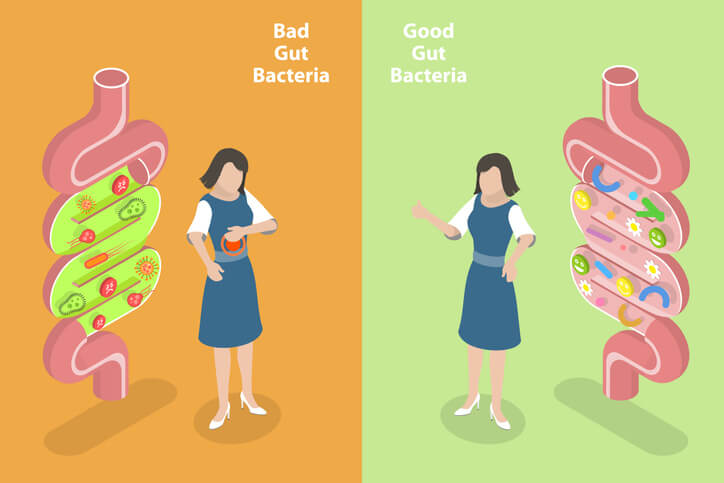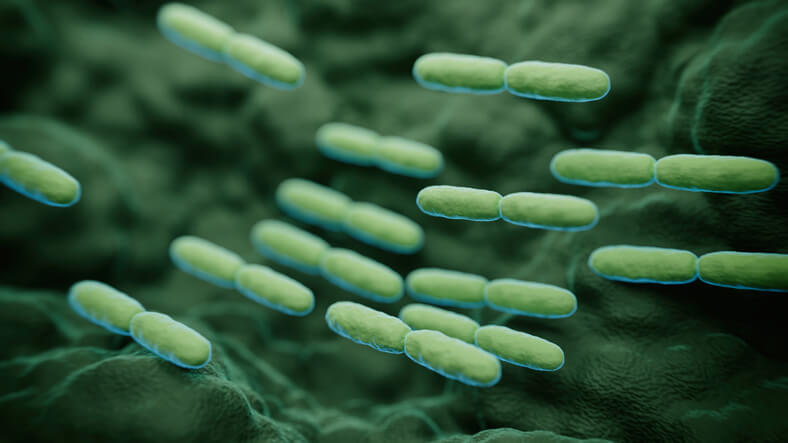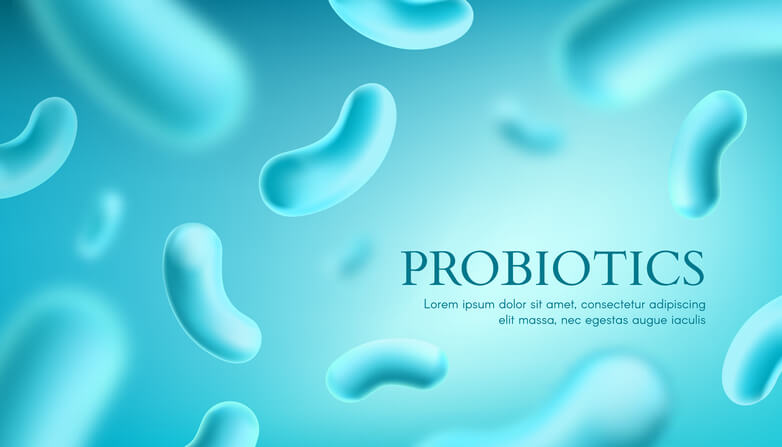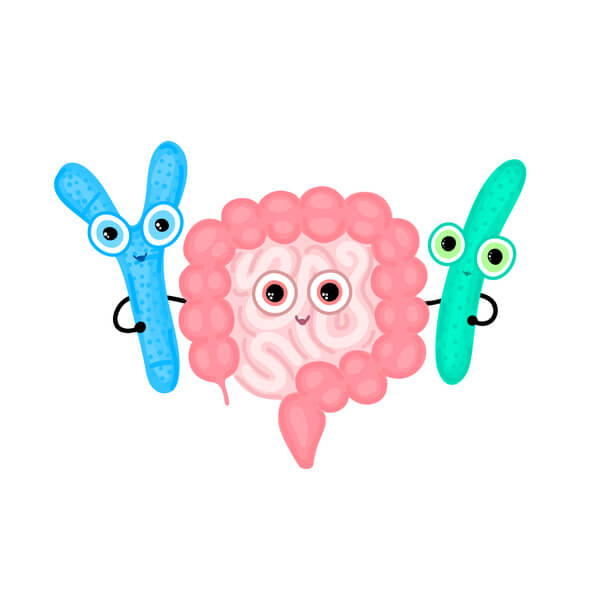Hello, everyone. Today, we’re going to talk about the ‘gut,’ the core of our body. Surprisingly, many functions of our body start in this little world. When the gut works properly, it helps us gain energy, absorb nutrients, and remove toxins. But what happens when gut health is compromised? The results can range from serious diseases to skin problems.
So today, we’re going to delve deeply into the importance of a diet for maintaining gut health and its effects. In this post, we’ll explore various topics including weight loss and immune boost associated with a gut health diet; different types of such diets; and even their impact on skin health.
Maintaining gut health is more than just resolving digestive issues. In fact, bacteria in your gut (i.e., your microbiota) regulate many processes throughout your body—such as natural immune responses and hormone production.
However—as shown by most people—the modern lifestyle full of stress-filled daily routines and diets filled with processed foods often negatively impacts our microbiota. As a result of these situations, an increasing number of people are experiencing various diseases related to digestive problems.
Therefore, in this post we will explore various diet methods for gut health; how they contribute to weight loss and immune boost; as well as understanding the relationship between skin health and gut health. Through this information you will be able to take care of your own health and make better choices in everyday life.
Shall we get started? Welcome to your journey for better gut health!
1-1. The Importance of Diet for Intestinal Health
1-2. The Effects of Diet on Intestinal Health
2. Types of Diets for Intestinal Health
3. Intestinal Health Diet and Weight Loss
4. Impact of an Intestinal Health Diet on Skin
5. Intestinal Health Diet and Immunity Boost
6. Intestinal Health Diet and Side Effects
1-1. The Importance of Diet for Intestinal Health:
In our bodies, the intestines play a very vital role in digestion, nutrient absorption, and the immune system. For this reason, we realize how important it is to maintain intestinal health. Intestinal health reflects the overall health status of our bodies and maintaining it requires proper eating habits.
So how can we diet for intestinal health? Firstly, it is essential to consume fiber-rich foods (e.g., fruits, vegetables, beans) and hydrate adequately. Also, it is beneficial to have regular meal times.
1-2. The Effects of Diet on Intestinal Health:
A diet aimed at intestinal health brings several wonderful effects.
Firstly, improved digestion makes weight management easier.
Secondly, strengthening the immune system increases your ability to combat diseases like colds or flu.
Thirdly, there are positive psychological impacts such as mood enhancement and energy increase.
In conclusion: It’s important that we all pay more attention to our eating habits in everyday life to maintain intestinal health. A diet for intestinal health greatly contributes to our overall well-being; hence effort should be put into improving dietary habits for this purpose. As a result, we will be able to enjoy a healthier and more vibrant life.
2. Types of Diets for Intestinal Health:
There are various diets and lifestyle habits to maintain and improve intestinal health.
Firstly, there is the high-fiber diet. Foods rich in fiber such as fruits, vegetables, and beans aid bowel movement and prevent constipation.
Secondly is the consumption of fermented foods. Fermented foods like yogurt or kimchi provide probiotics that help proliferate beneficial bacteria in the gut.
Thirdly is sufficient hydration. Water aids digestion and is necessary to prevent constipation.
Fourthly are regular meal times. Regular eating schedules aid optimal gut function and digestion.
Lastly is exercise. Consistent physical activity contributes to the smooth operation of the digestive system and promotes intestinal health.
In conclusion: You can choose one or more of these methods mentioned above according to your situation and body condition and practice them in your daily life. By doing so, you will greatly improve your ‘intestinal’ health.
3. Intestinal Health Diet and Weight Loss:
Intestinal health significantly impacts weight management. When digestion is smooth, food is effectively broken down, necessary nutrients are absorbed by the body, and the rest is excreted. In this process, a balanced diet and fiber-rich meals can help prevent overeating by providing satiety, aiding in weight management.
Fiber – a key element of an intestinal health diet – delays digestion to maintain satiety and reduces the absorption of sugars and fats to aid in weight loss.
Also, fermented foods assist in proliferating beneficial gut bacteria leading to improved digestive function and increased immunity; this overall improvement in health status ultimately brings positive results in weight regulation.
In conclusion: The intestinal health diet contributes directly to weight loss through improved digestive function and increased satiety. Therefore it’s necessary for all of us to pay more attention to our eating habits and lifestyle patterns daily while making efforts towards improving lifestyle habits for intestinal health.

4. Impact of an Intestinal Health Diet on Skin:
The connection between intestinal health and skin condition is increasingly recognized. A well-functioning digestive system plays an important role in properly absorbing necessary nutrients and expelling toxins. These processes greatly influence our skin condition.
A diet rich in fiber aids the smooth operation of the digestive system. Fiber helps remove toxins from the body, improves digestion, and prevents constipation – reducing inflammation that can occur within the body. These processes significantly contribute to maintaining beautiful skin.
Also, consuming fermented foods rich in probiotics (e.g., yogurt) assists with proliferating beneficial gut bacteria and boosting immunity, ultimately leading to vibrant beautiful skin.
In conclusion: The intestinal health diet contributes directly to improving our skin condition through proper digestive function and regulating internal conditions. Therefore it’s necessary for all of us to pay more attention to our eating habits and lifestyle patterns daily while making efforts towards improving lifestyle habits for intestinal health.
5. Intestinal Health Diet and Immunity Boost:
Our intestines play a central role in our body’s immune system. In fact, most immune responses start in the gut; therefore, gut health directly affects our overall immunity.
A diet rich in fiber and fermented food intake creates a balanced gut environment, contributing to building a robust immune system. Fiber helps remove toxins from the body, improves digestion, and prevents constipation – reducing inflammation that can occur within the body. These processes all help strengthen our immune system.
Also consuming fermented foods containing probiotics (e.g., yogurt) assists with proliferating beneficial bacteria and strengthening the immune system; this ultimately leads to building a strong first line of defense.
In conclusion: The intestinal health diet contributes directly to improving our overall immunity through proper digestive function and proliferating beneficial bacteria as the first line of defense. Therefore it’s necessary for all of us to pay more attention to our eating habits and lifestyle patterns daily while making efforts towards improving lifestyle habits for intestinal health.
6. Intestinal Health Diet and Side Effects:
Even though it can have a very positive impact on our body and health, not all dietary changes always yield positive results. Particularly in the initial stages, some people may experience temporary discomfort due to new eating habits.
Starting a fiber-rich diet may initially cause issues such as gas formation in your digestive system. These changes are temporary phenomena that occur as your body adapts to new dietary patterns.
Also, increasing intake of fermented foods (e.g., yogurt) helps proliferate beneficial bacteria and strengthens the immune system as a first line of defense; however, consuming them excessively could lead to problems like gas formation.
Therefore, it is necessary for all of us to pay more attention to our eating habits and lifestyle patterns daily while making efforts towards improving lifestyle habits for intestinal health. However, it is important to approach these changes cautiously and proceed slowly while preparing for possible side effects.










Leave a Reply